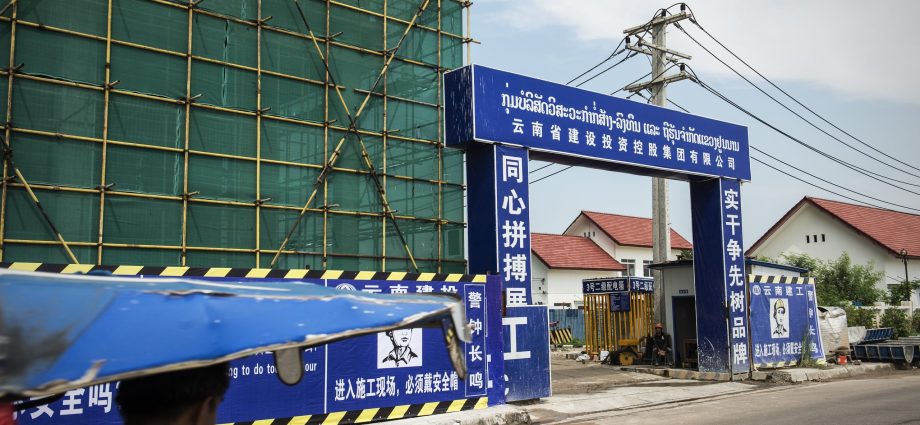Many emerging Asian economies require billions of development finance to meet climate and economic growth targets. Developed countries have repeatedly committed to supporting the green transition but they have consistently fallen short of expectations.
Developed countries committed to mobilizing US$100 billion per year by 2020 to support climate action in developing countries but fell well short of expectations.
Indonesia, for example, requires about $281 billion of funding from 2018 to 2030 — or about $22 billion annually — to achieve its Nationally Determined Contributions and reduce greenhouse gas emissions by 43.20% with international support.
Several Asian economies, including Indonesia and Vietnam, have been negotiating a Just Energy Transition Partnership (JETP).
JETP Indonesia includes $10 billion in public sector pledges from International Partners Group members and other actors such as the European Union, United States, Japan, Canada, Denmark, France, Germany, Italy, Norway and the United Kingdom. It also includes a commitment to mobilize an additional $10 billion in private financing.
But relying solely on such promises poses risks to national climate and development progress due to uncertainties and signals of backsliding by developed countries. Indonesia and other emerging Asian economies need to recognize the challenges associated with accelerating the implementation of climate finance commitments.
Public and private climate finance is difficult to deliver internationally. This climate finance often lacks specified sovereign commitments and relies on risk-reward analysis for private-sector investments. This contrasts with China’s approach of combining public and “commercial” finance through policy banks and state-owned enterprises.
Even with international climate finance through JETP, financing large-scale green energy projects becomes challenging due to increased foreign exchange risks. This limits local financial institutions’ capacity to provide long-term loans.
Sovereign guarantees, which are essential for derisking larger projects, are harder to obtain due to sovereign debt risks. The dominance of state-owned enterprises in most Asian developing countries’ energy markets also restricts private investor participation in power and grid projects.

Lastly, support for domestically financing the energy transition has experienced setbacks due to energy security concerns amid rising energy prices. This has resulted in increased coal production in Indonesia and reversals of no-new-coal commitments in countries like Pakistan.
Developing Asian economies can consider strategies to address these challenges such as strengthening commitments, mitigating investment risks, improving market mechanisms and cooperating with regional partners.
To accelerate the green energy transition, developing economies can strengthen political and regulatory commitments. Green-minded investors — including development finance institutions — cannot credibly provide coal-transition finance while political support for coal is not reduced.
This was highlighted in the June 2023 draft of the Glasgow Financial Alliance for Net Zero Guide to Managed Phaseout of Coal in Asia-Pacific. The guide states that the foundation for attracting green and coal-transition finance is to ensure the “credibility of relevant energy transition and coal phaseout commitments and plans.”
Existing climate change partnerships with multilateral organizations or bilateral countries — such as Indonesia’s partnership with Norway — can help strengthen domestic institutions and capacity building.
Another strategy for developing economies is to enhance collaboration between local financial partners and major donor countries to mitigate investment risks. This can be achieved through currency hedging support and guarantee instruments to attract private investors.
Recent discussions at the Summit for a New Global Financing Pact in Paris emphasized the importance of innovative financing mechanisms.
The development of innovative financing mechanisms could consider ASEAN’s sustainable finance taxonomy with a traffic light system which supports coal retirement and Indonesia’s new sustainable finance framework. This would help to build on Bank Indonesia’s previous experience of issuing green bonds.
Market mechanisms should also be improved to attract private investors across the green energy supply chain. Providing tax incentives for green energy projects, expediting negotiations of green energy power purchase agreements and ensuring priority payments for green electricity provision can attract these private investments.
Encouraging green transition investments in state-owned enterprises through international partnerships could also leverage green finance instruments.
Developing economies should also seek cooperation with regional partners such as China and South Korea for additional renewable energy project funding. China’s increasing investments in overseas green energy and hydropower projects — as well as its efforts to “green” the Belt and Road Initiative — make it an important regional partner.

China–Indonesia partnerships, supported by the Belt and Road Initiative International Green Development Coalition and Indonesia’s Institute for Essential Services Reform, can accelerate green Chinese investments in Indonesia.
South Korea is another promising regional partner in climate cooperation with its commitment to supporting the Green Climate Fund in providing a total of $30.3 billion for climate projects in partner countries.
Successfully accelerating the greening of the energy system in emerging Asian economies requires significant willingness and risk-taking to tackle financing and political constraints in addition to important transition considerations.
Mengdi Yue is Visiting Researcher at the Green Finance & Development Center at Fudan University.
Christoph Nedopil is Associate Professor and Director of the Green Finance & Development Center at Fudan University.
This article was originally published by East Asia Forum and is republished under a Creative Commons license.

